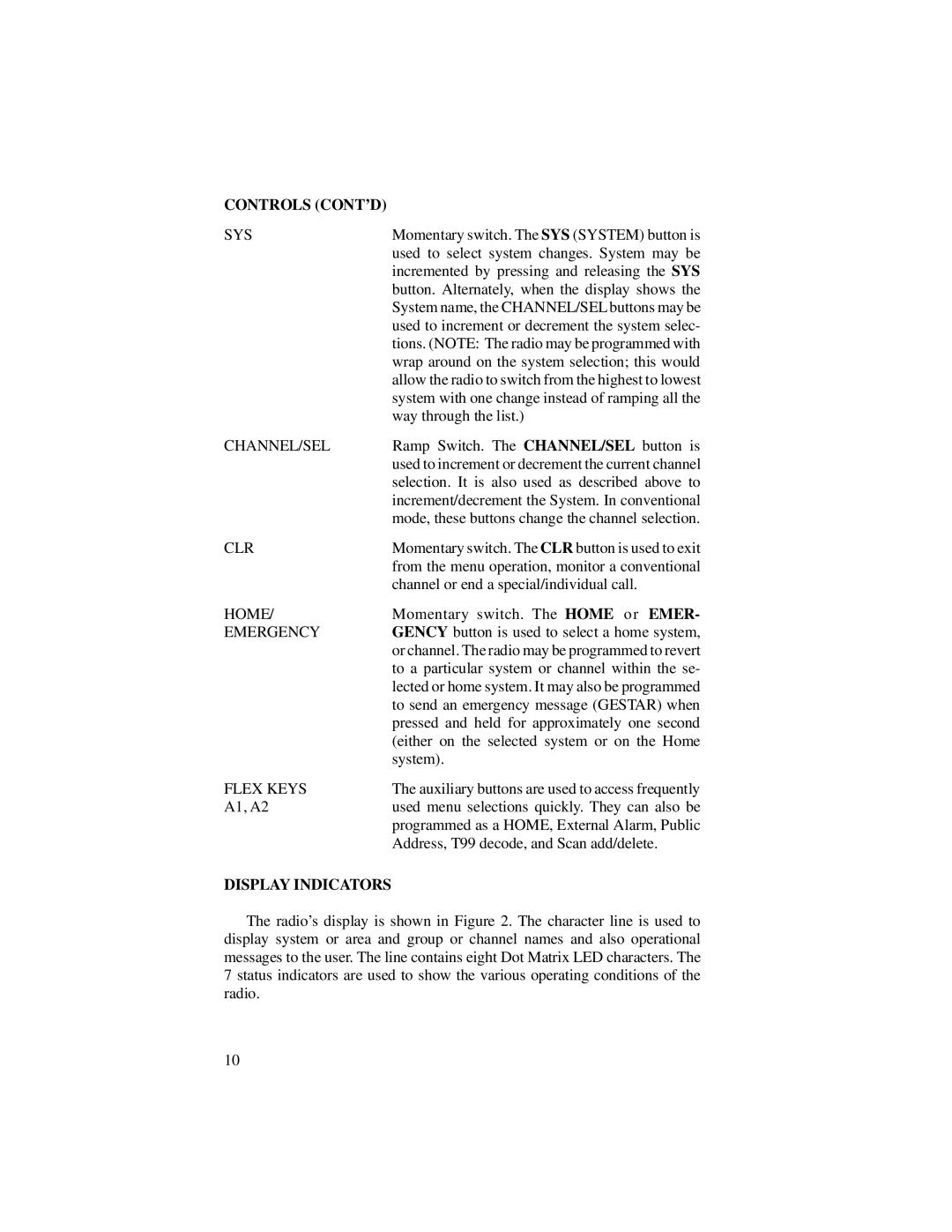CONTROLS (CONT’D) |
|
SYS | Momentary switch. The SYS (SYSTEM) button is |
| used to select system changes. System may be |
| incremented by pressing and releasing the SYS |
| button. Alternately, when the display shows the |
| System name, the CHANNEL/SEL buttons may be |
| used to increment or decrement the system selec- |
| tions. (NOTE: The radio may be programmed with |
| wrap around on the system selection; this would |
| allow the radio to switch from the highest to lowest |
| system with one change instead of ramping all the |
| way through the list.) |
CHANNEL/SEL | Ramp Switch. The CHANNEL/SEL button is |
| used to increment or decrement the current channel |
| selection. It is also used as described above to |
| increment/decrement the System. In conventional |
| mode, these buttons change the channel selection. |
CLR | Momentary switch. The CLR button is used to exit |
| from the menu operation, monitor a conventional |
| channel or end a special/individual call. |
HOME/ | Momentary switch. The HOME or EMER- |
EMERGENCY | GENCY button is used to select a home system, |
| or channel. The radio may be programmed to revert |
| to a particular system or channel within the se- |
| lected or home system. It may also be programmed |
| to send an emergency message (GESTAR) when |
| pressed and held for approximately one second |
| (either on the selected system or on the Home |
| system). |
FLEX KEYS | The auxiliary buttons are used to access frequently |
A1, A2 | used menu selections quickly. They can also be |
| programmed as a HOME, External Alarm, Public |
| Address, T99 decode, and Scan add/delete. |
DISPLAY INDICATORS
The radio’s display is shown in Figure 2. The character line is used to display system or area and group or channel names and also operational messages to the user. The line contains eight Dot Matrix LED characters. The 7 status indicators are used to show the various operating conditions of the radio.
10
